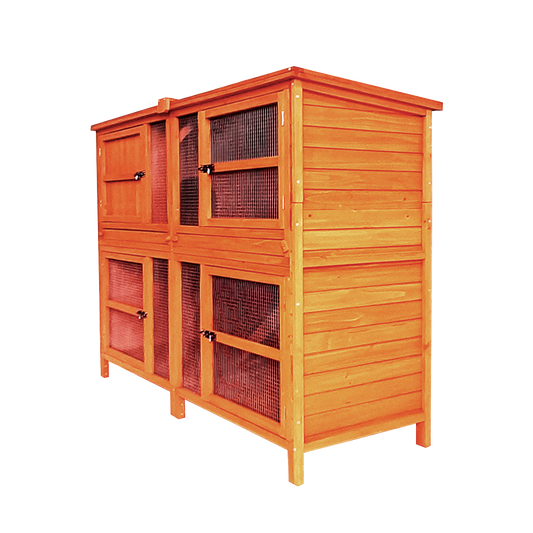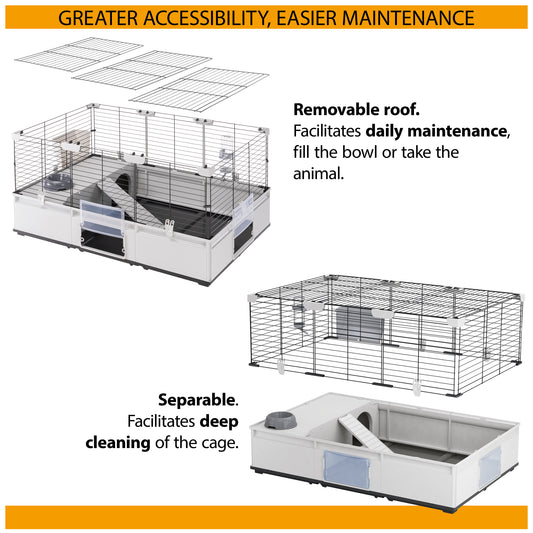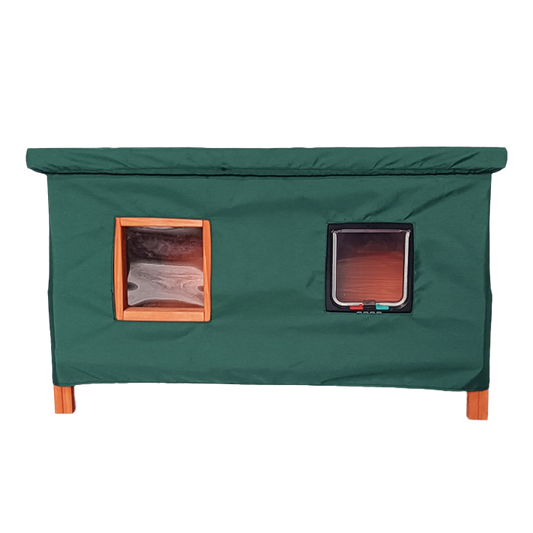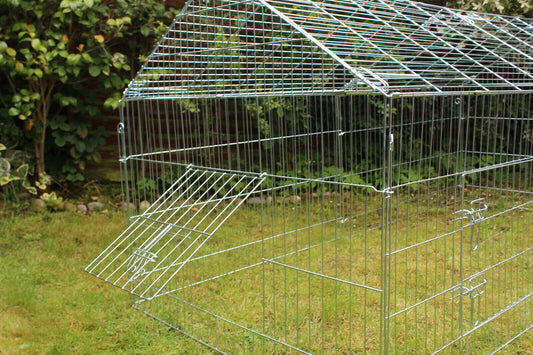With your cat counting the days until Santa Claws comes, they'll be keeping a close eye on all the festive activities going on around them, and it won't just be their own gifts and treats they'll be keen to investigate.
When you, or your Christmas guests, are laying out your festive fare this Christmas, make sure you are aware of any dangerous hidden toxins. Many of the foods and decorations that we enjoy at this time of year could result in serious illness if your cat gets hold of something it shouldn’t, but there are some leftovers which are safe for cats!
Christmas trees
Cats love Christmas trees as they offer an extra indoor climbing opportunity and lots of shiny balls to bat with their paws. But did you know that fir trees are toxic to cats? The trees produce oils that can cause irritation to a cat’s mouth and stomach if ingested – although it is unlikely that a cat would eat enough to cause themselves harm. If you notice your cat licking or chewing your Christmas tree, find a way to prevent them from getting too close to it or switch to an artificial tree.
Potted Christmas trees may contain fertilisers or plant food in the soil which can be highly toxic to cats. To stop your cat getting to the soil, wrap something around the top of the pot. This will also stop your cat using it as a toilet!
Plants
You might want to think twice before decking your halls with holly and mistletoe as the berries are poisonous to cats. Other festive plants that you might have to decorate your home, such as poinsettias and cyclamen, are poisonous too.
If you want to have these plants in your home, make sure they are well out of your pet’s reach or opt for an artificial version to be on the safe side.
If you are lucky enough to receive a bouquet of flowers as a gift, look out for lilies which are particularly toxic to cats. Just a few bites can cause fatal kidney failure so it is a good idea to avoid them completely.
Snow globes
Cats love swatting baubles and if you have a snow globe on your mantlepiece it might just prove too tempting for your pet – but it is not just the risk of broken glass that you need to worry about. Some snow globes contain ethylene glycol (antifreeze), which is highly toxic if ingested. If you can’t guarantee that your cat won’t reach a snow globe, it would be much safer to not put it out on display.
Chocolate
Fortunately, most pet owners are now aware that chocolate is highly toxic to cats. This is due to a chemical it contains called theobromine, which is similar to caffeine. Theobromine’s main effect on cats is to over-stimulate their muscles, including their heart, and just a couple of grams of chocolate could be fatal.
Symptoms of chocolate poisoning in cats include vomiting, diarrhoea, excessive urination, irregular heartbeat and seizures. The higher the cocoa content and the smaller the cat, the riskier it is.
Cats are less at risk of chocolate poisoning than dogs because they lack the ability to taste sweetness and are therefore less interested in eating it. However, you should always keep chocolate out of the way, just in case curiosity gets the better of your cat and they decide to try it.
Your cat doesn't have to miss out on the fun, though, with a number of chocolate-free advent calendar and festive treat options available.
Other toxic food
Christmas treats such as mince pies, Christmas cake, Christmas pudding and stollen all contain dried fruit which is highly toxic for cats. In the same way that they won’t be interested in the taste of chocolate, they are unlikely to want to take a bite – but keep them out of the way in case they are tempted! The same goes for onion, garlic and alcohol which might play a part in your Christmas dinner.
When to see your vet
If you think that your cat has eaten something that it shouldn’t, speak to your vet straight away. Never try to make your cat vomit as you could end up causing complications – leave it to the experts!
When you call your vet, they are likely to ask you the following questions:
- What is it that you think your cat has eaten?
- How much do you think it has eaten?
- When do you think your cat ate it?
- Is your cat showing any signs of illness, if so, what are they?
If you suspect that your cat has eaten something toxic, don’t wait for them to become ill. Seek veterinary advice as soon as possible because the faster a cat is treated, the better the outcome is likely to be.









